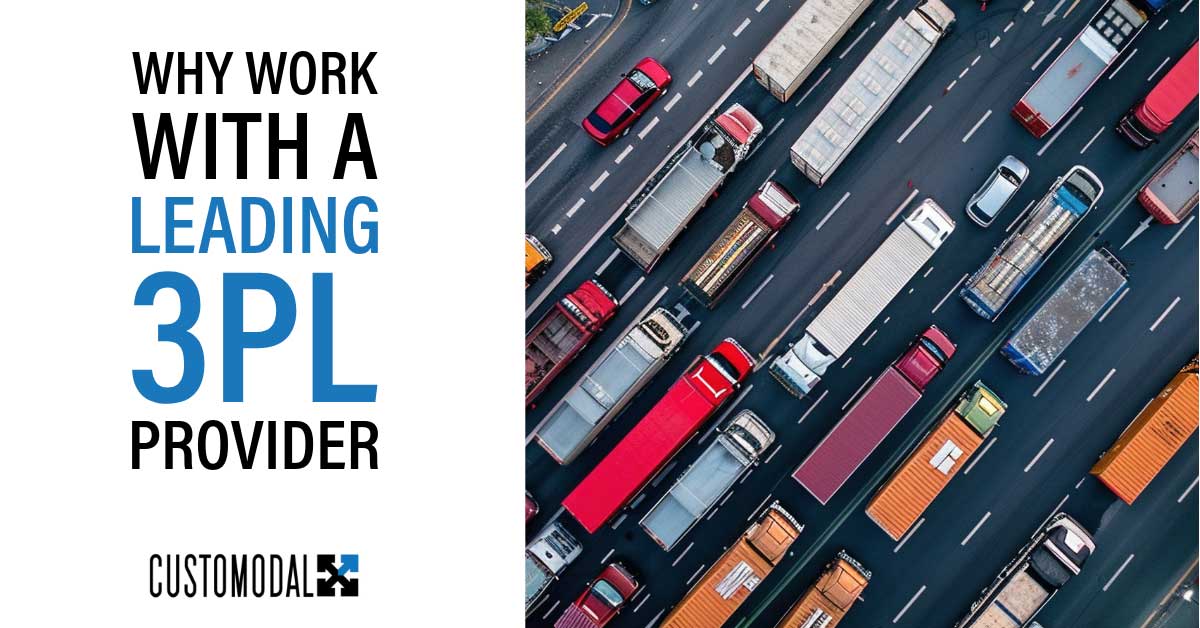
As your business evolves, you may find yourself needing more than basic shipping solutions. Perhaps you're dealing with fluctuating shipping volumes or looking to offload the complexities of inventory management. This is where the choice between a freight broker and a 3PL comes into play.
While both facilitate the movement of goods, their roles and service offerings diverge significantly. We'll break down these differences so you can determine the optimal fit for your operational needs.
Understanding Your Options
Freight Broker: Your Transportation Specialist
At its core, a freight broker acts as an intermediary, connecting shippers with carriers to facilitate the transportation of goods. Think of them as the matchmakers of the logistics world. Their primary focus is on arranging the movement of cargo, ensuring it gets from point A to point B efficiently and cost-effectively.
The focus of freight brokerage is transportation arrangements. They leverage their extensive network of carriers and their in-depth knowledge of market trends to find the best rates and routes for their clients. This involves negotiating with carriers, securing capacity, and managing the logistics of the shipment. Their expertise in negotiation and market knowledge is a significant asset. They stay abreast of fluctuating fuel prices, seasonal demands, and carrier availability, allowing them to secure competitive rates and optimize shipping schedules.
Imagine a company that specializes in distributing perishable goods. When a sudden surge in demand requires an urgent, last-minute shipment, a freight broker can quickly step in. They leverage their carrier network to find a refrigerated truck, negotiate a fair rate, and ensure the goods are delivered on time, preserving their quality. In situations where time is critical and specialized equipment is needed, a freight broker's expertise can be invaluable.
3PL: Your Comprehensive Logistics Partner
In contrast, a 3PL, or third-party logistics provider, offers a much broader range of logistics services. They provide comprehensive, end-to-end solutions that extend far beyond simply arranging transportation. 3PLs handle various aspects of the supply chain, including warehousing, distribution, inventory management, order fulfillment, and even reverse logistics.
Their "end-to-end" approach means they can manage the entire logistics process, from storing goods in their warehouses to delivering them to the final customer. For example, an e-commerce company might partner with a 3PL to manage its entire supply chain. The 3PL would handle receiving and storing inventory, processing orders, packing and shipping products, and managing returns. This allows the e-commerce company to focus on its core business activities, such as product development and marketing, while the 3PL takes care of the logistics.
The scope of services offered by 3PLs is a key differentiator. They provide integrated solutions that streamline operations, improve efficiency, and reduce costs. By outsourcing multiple logistics functions to a 3PL, businesses can benefit from economies of scale and access to specialized expertise and technology.
To further clarify the distinctions between freight brokers and 3PLs, here's a summary of their key differences:
| Feature | Freight Broker | 3PL |
| Primary Focus | Transportation arrangement | Comprehensive logistics solutions |
| Service Scope | Connecting shippers with carriers, negotiating rates, and managing transportation | Warehousing, distribution, inventory management, order fulfillment, and more |
| Asset Ownership | Typically does not own transportation or warehousing assets | May own or manage warehouses, trucks, and other logistics assets |
| Level of Involvement | Transaction-based; involved in specific shipments | Ongoing partnership; manages multiple aspects of the supply chain |
| Expertise | Strong in transportation logistics and market knowledge | Broad expertise across various logistics functions |
| Best For | Businesses with specific transportation needs or those seeking cost-effective shipping solutions | Businesses seeking to outsource and streamline all or a specific segment of their supply chain |
Understanding the fundamental roles of freight brokers and 3PLs sets the stage for determining which option best suits your business. While both play crucial parts in the supply chain, their distinct service offerings cater to different needs.
When to Choose a Freight Broker
When You Have Specific Transportation Needs
Freight brokers are ideal when your business requires focused transportation solutions. If you have occasional shipments, need to transport goods along specific routes, or require specialized equipment, a freight broker can provide the expertise and flexibility you need. For instance, a small business that occasionally ships oversized equipment might find a freight broker's specialized knowledge more cost-effective than a full 3PL contract.
When Cost-Effectiveness is a Priority
Due to their extensive carrier networks, freight brokers can often secure competitive rates, particularly for specific transportation tasks. This makes freight brokers a valuable option for businesses looking to optimize their shipping expenses without committing to a full suite of logistics services.
When Flexibility and Speed Are Essential
Freight brokers excel in adapting to changing market conditions and handling urgent shipments. Their agility allows them to quickly find solutions for unexpected delays or last-minute needs. For example, a company facing an urgent demand for a product can rely on a freight broker to quickly secure transportation and ensure timely delivery, minimizing potential disruptions.
When to Choose a 3PL
When You Need Comprehensive Supply Chain Management
3PLs are the right choice when your business requires integrated logistics solutions. If you need warehousing, distribution, inventory management, and other supply chain services, a 3PL can provide a comprehensive approach. For example, a growing e-commerce business needing scalable storage and efficient order fulfillment would benefit greatly from partnering with a 3PL.
When Scalability and Growth are a Priority
3PLs are instrumental in supporting business expansion by providing scalable logistics solutions. When businesses experience growth, they often face challenges in managing increased volumes and expanding into new markets. 3PLs offer the necessary infrastructure and resources to handle these demands seamlessly. Their ability to quickly scale operations, whether it's expanding warehouse space, increasing transportation capacity, or managing a larger inventory, allows businesses to focus on their core competencies without being hindered by logistical constraints.
When Streamlining Operations is Crucial
By outsourcing multiple logistics functions, businesses can streamline operations and improve efficiency. For instance, a company expanding into new geographical markets can leverage a 3PL's distribution network to ensure timely and cost-effective delivery. This allows the company to focus on its core business activities while the 3PL handles the complexities of logistics.
Making the Right Choice: A Checklist
Now that we've outlined the core differences between freight brokers and 3PLs, it's time to determine which option aligns best with your business needs. The decision hinges on a variety of factors, from your specific transportation requirements to your long-term growth objectives. Start by asking yourself these questions:
-
What are your current logistics challenges? Begin by identifying pain points. Are you struggling with high shipping costs, frequent delays, or inventory management issues? Understanding these challenges will help you determine the type of support you need.
-
What is your budget for logistics services? Consider the financial aspect. Freight brokers and 3PLs have different pricing models. Determine how much you can allocate to logistics and weigh it against the potential return on investment.
-
What is your required service scope? Define the range of services you need. Do you need a partner to handle everything from warehousing to final delivery, or do you only need assistance with transportation?
-
What are your business growth projections? Think long-term. If you anticipate significant growth, a 3PL might be better equipped to scale with you. If your needs are relatively stable, a freight broker could be sufficient.
The choice between a freight broker and a 3PL isn't merely a logistical decision; it's a strategic imperative. In a landscape where supply chains dictate market success, selecting the right partner can transform operational hurdles into competitive advantages. It's about more than moving goods; it's about architecting a seamless flow that enhances your bottom line and elevates customer satisfaction.
At Customodal, we understand that logistics isn't a one-size-fits-all solution. We're here to help you navigate these critical choices, ensuring your logistics strategy is not just efficient, but a powerful driver of your business's future.
Ready to optimize your supply chain? Contact Customodal today for a personalized consultation and discover the logistics solution that fits your unique needs.





